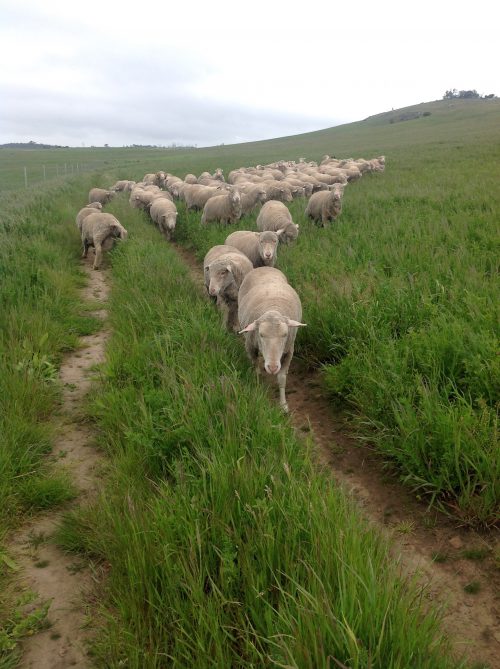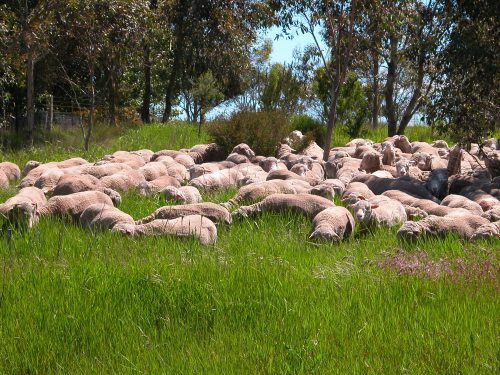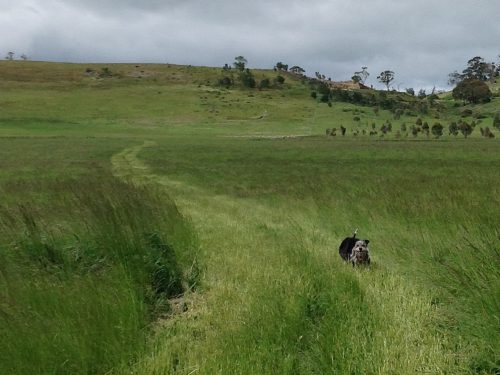(It’s taking longer than I’d hoped to get the new website ready to go, so I’m sending you this short Yarn in the meantime. Nan)
Those of you who know me personally and through reading the Yarns will have a pretty good idea of the horrified fascination with which I watched the US election campaign—a bit like watching a forest fire raging out of control—and the dismay I felt at the result. Until yesterday, I hadn’t found the words I wanted to write, but after watching changes in flock behaviour after I re-united the “mothers-to-be” with the main flock, I was inspired to share the following perspective with you.
Five weeks ago, I put 3 of my 8 rams out with 98 ewes for an autumn lambing. The ewes I picked were many of the strongest leaders in the flock: 3, 4 and 5 year-olds. I left the older ewes (6 and 7 year-olds) with the main flock of 400.
Almost immediately, I noticed changes in the leadership dynamics in both flocks. The mothers-to-be were continuously distracted by the rams chasing them around in circles, and seemed unable to maintain a deliberate direction for more than a few hundred meters at a time. Shepherding them was a battle, as the group kept being turned back by a ram and ewe pair running around the front.
At the same time, the main flock seemed pretty much rudderless. The 150 young wethers were tending to fight among themselves after a dose of testosterone to help them resist bacterial infection of the sheath that commonly occurs with high levels of protein (e.g. clover) in their diet. The remaining older ewes did not seem to have the ability to garner a following. Between the leadership vacuum and the abundant feed, the main flock seldom moved more than a few hundred metres in a day unless I took them shepherding.
Last Friday, I took the 3 rams out of the mothers-to-be flock and re-united the girls with the main flock. Immediately, the flock grazing behaviour changed radically—the leadership was re-established within hours, or less. The flock as a whole began grazing “with intent”: travelling steadily into the wind, and covering a kilometre or so in the first couple of hours. They’d have kept going, I’m sure, except there was a fence in their way.
The rams wandered off disconsolately, after becoming convinced there was to be no more time with the ewes. They joined their brethren in the ram paddock, laid down and had a rest. They’ve been working hard, impressing each other with their bellicociousness and chasing the girls.
Watching the newly re-integrated flock resume sane, sensible, life-enhancing behaviour gave me hope that societies around the world could heal their differences, work together under inclusive leadership and get on with the wonderful business of life.
It would help to get the rams out first.
The rams just after coming out of the mothers-to-be flock. It took both Janie and Chance to convince them to move away from the gate and back to their own paddock. The blue dots on their heads are fly-strike prevention, to keep flies out of the wounds inflicted by running headlong into each other. Repeatedly.







